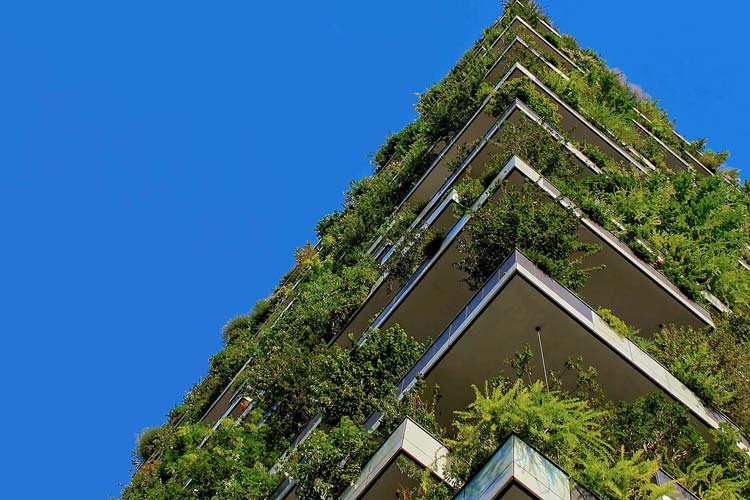

It’s time to find the right balance between efficiency and effectiveness of a sustainable community.
May 27, 2022 | Aaleen Parulekar | UAE | Community Management

Defined as the capacity to endure in a relatively ongoing way across various domains of life, sustainability as a concept has been doing its rounds since the early 2000s. What was initially introduced as a trend has quickly developed into the pressing need of the hour.
The three key aspects of sustainable development are environmental, socio-ethical, and economic sustainability. Only when all three of these parameters are met in equal measure does a system get termed sustainable. Thus, making sustainability a concept that is highly contextual and can be differently applied to different communities.
Products and services that are marketed as sustainable alternatives are often a means to greenwash a company’s campaign. In an effort to make their concepts seem more relevant, organizations propagate eco-friendly concepts that have a lower sustainable impact than one is led to believe. Contrary to popular belief, sustainability does not mean replacing all your current products with more eco-friendly options. It is a systems design change that needs to take place at each level, individual and organizational to truly bring about an impact to a community.
In the year 2015, the United Nations released a list of 17 Sustainable Development Goals or UNSDGs -a global call for action by all countries in partnership- that addressed the various areas where sustainable development required immediate action. UN SDG number 11 discusses the need for sustainable cities and communities. With a list of 10 targets to achieve by the year 2030, this goal’s major objectives include creating safe, inclusive, resilient, and sustainable human settlements.
While over 156 countries across the globe have developed policies and plans for urban development, only half of these are in the implementation stage. The Government of UAE, as part of its national responsibility to achieve sustainable development goal benchmarks, has introduced a host of policies and programs. One of the six pillars of the UAE National Agenda is the provision of Sustainable Environment and Infrastructure. Programs like Smart Sustainable Cities that are being set up across the country, will help reach the 2030 target set by the UN.
This progress is tracked by a host of reports and indexes like the Air Quality, Water Scarcity, Logistics Performance, and Online Services Index. Reports on the quality of transportation infrastructure and telecommunications infrastructure are also used as parameters to measure the success of the policies. As of 2020, the UAE ranked 12th globally on the Overall Quality of Infrastructure (transportation, telecommunications, electricity, etc).
In a scenario of extreme climatic conditions and fast depleting consumption of natural resources, UAE faces a unique challenge while building sustainable spaces. Innovative Smart Cities use Information and Communication technologies to facilitate a better quality of life, efficient functioning of services and operations, and a needs-based approach to resource consumption. This concept ensures that the needs of the current generation of residents are met without hindering those of the future generations to come. Its key goal is to reduce the negative impact to all 3 parameters of sustainability: environmental, social, and economic.
With Masdar City envisioned in 2006, UAE pioneered the setup of sustainable cities in the Middle East. The major aim of this project was to reduce energy consumption and waste generation. This was achieved through a combination of architectural designs, engineering technologies, and solar-powered innovations. Another smart city in its pilot phase is Abu Dhabi’s Zayed Smart City that focuses on information technology and the internet of things as its conceptual framework.
Both the Dubai Plan 2021 and the Abu Dhabi Economic Plan 2030, include the setup of Smart Sustainable Cities as one of their key areas of focus. Sustainable City, Dubai, and Dubai Silicon Park are two such award-winning cities that focus on reduced energy consumption and developing happier communities. Desert Rose City and Dubai South District are upcoming mixed-use properties set to develop sustainable communities through a combination of tools, infrastructure, and technologies.
A balanced sustainable community mimics the cycle of life where a host of human, environmental and economic factors interact in tandem. This balance results in two major results – Efficiency and Effectiveness. While efficiency dictates the use of the resources adequately for current and future generations, effectiveness affects the overall satisfaction of the community. And as they say, a happy community is a productive community.